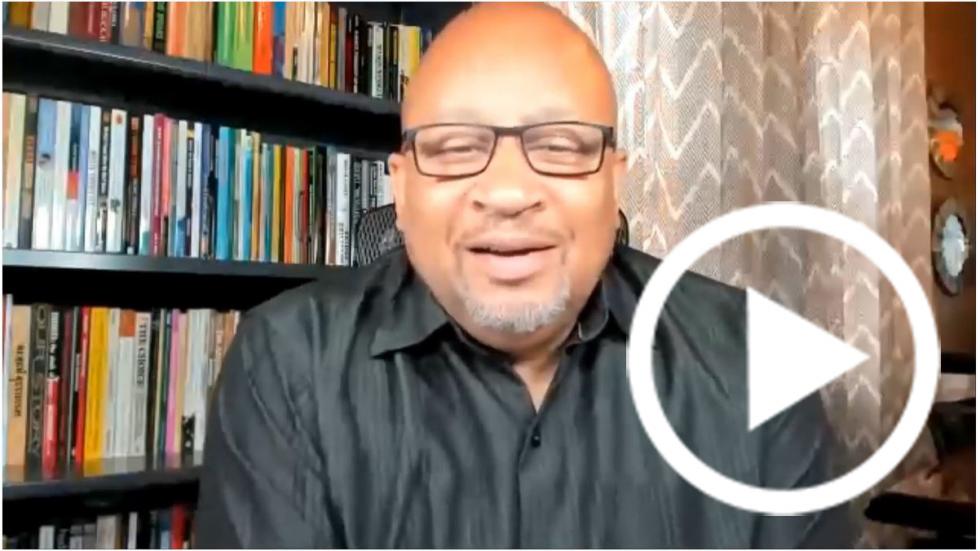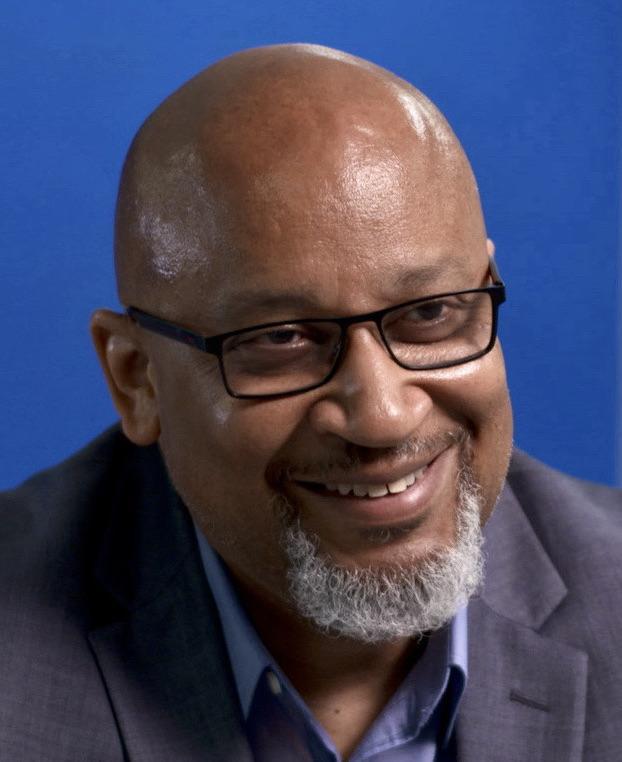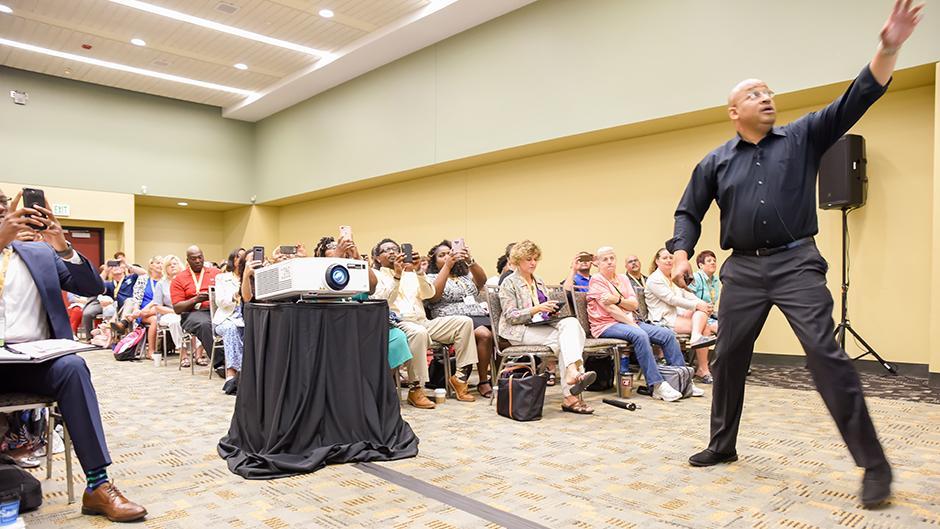Nurture Each Child
How Classroom Teachers Can Change the Trajectory of a Child
By Tim Shaughnessy and Diane James, SREB
Creating equitable access to high-quality learning experiences for every student is at the top of most educators’ minds, but there is no universal solution for how to achieve this critical goal and ensure more students graduate ready for further education, rewarding careers and fulfilling lives.
Former teacher and principal Baruti Kafele of Principal Kafele Consulting, LLC, is a highly acclaimed expert, author and speaker on educational leadership and equitable school and classroom practices that promote high engagement and achievement for every student.
 During his featured session at the 2021 Making Schools Work Conference, Kafele shared how the ability to establish equitable school and classroom practices requires an equity mindset teacher — one who challenges themselves every day in how they see, treat and relate to students. He suggests that teachers work to recognize and acknowledge the unconscious and implicit or explicit biases they may bring to the classroom and meet students where and as they are.
During his featured session at the 2021 Making Schools Work Conference, Kafele shared how the ability to establish equitable school and classroom practices requires an equity mindset teacher — one who challenges themselves every day in how they see, treat and relate to students. He suggests that teachers work to recognize and acknowledge the unconscious and implicit or explicit biases they may bring to the classroom and meet students where and as they are.
“Who you see when you look at students plays a significant role in who they become … If you don’t see phenomenal, if you don’t see amazing, but on the other hand, you see less than, they know and … it becomes a self-fulling prophecy,” asserts Kafele.
Recognizing Students’ Unique Needs
According to Kafele, an equity mindset begins not with training or specific practices, but when individuals make the decision to become educators because they love children. At that point, future educators position themselves to see students’ individuality and meet their needs: It’s “that compassion that you have for each individual learner. I genuinely want to meet the needs of each learner in my space,” reflects Kafele.
To meet each students’ needs, Kafele urges teachers to recognize:
- That each student can learn at the highest levels
- That children must be met where and as they are in a barrier-free learning environment. An example of placing a barrier on a student’s growth is when a teacher predetermines what a child’s highest learning level can be.
- The individuality of every student in the classroom. Each student has their own ways of learning, academically and socially. For example:
- Each student has their own way of learning, thinking and making sense out of and processing new information.
- Each student brings to the classroom their own unique set of experiences, realities, challenges, obstacles, interests, goals and aspirations that impact their learning and who they are socially.
- The cultural identity of each student
- That each student has their own voice
- That each student is someone special
Three Pillars or Non-Negotiables
Kafele believes there are three core pillars or non-negotiables to ensuring that school and classroom practices promote equitable access to quality learning experiences that recognize and celebrate students’ individual identities and needs:
- Student individuality — Teachers create a classroom environment in which students are visible, present and engaged as the individuals they are and not on the basis of a group identity.
- Student cultural identity — Teachers celebrate race and culture instead of trying to turn a blind eye to them. According to Kafele, although some teachers say they don’t see a student’s race or ethnic background, such “color-blind thinking” limits teachers’ ability to recognize students’ identities and help them explore and understand their history.
- Student voice — Effective teachers empower students to develop a strong voice in the classroom and offer them a platform to express their thoughts, ideas, beliefs and perspectives. Kafele contends there is a correlation between a student’s voice and their essence. “If they think their voice doesn’t matter, they don’t think they matter,” he says.
Relevance Matters
To better reach and teach each student, Kafele urges teachers to make themselves relevant in their students’ worlds. Teachers might ask themselves, “How do I look at the world in contrast to how my students look at the world?”
Relevant instructional strategies help, too. Students need to understand why information is useful and how it relates to their world — now and in the future. When course content isn’t relevant, students don’t hear it. Make it relatable or “you will lose your audience,” says Kafele.
“Are my students at an advantage because I’m their teacher?”
Words Matter
Teachers need to understand not only how they influence how students see themselves, but also the impact they have on who and what students become.
The powerful — and potentially damaging — role of language cannot be overstated. For example, it’s common in education to talk about at-risk students. But Kafele calls this an example of “deficit” speech that, consciously or not, creates a “deficit environment” in which students take on a deficit identity. Instead, Kafele challenges teachers to think about what strengths they as teachers bring to their classrooms and ask: “Are my students at an advantage because I’m their teacher?”
By committing to “daily change” through an ongoing process of self-reflection, self-assessment, self-adjustment and self-improvement, Kafele asserts that teachers can ensure that students feel heard when they say: “Believe in me as I am, with everything you’ve got; get to know me beyond who I am in the classroom; prove to me that you care about me and that you are committed to me; challenge me to reach my full potential; and expose me to my history.”
Contact: Baruti Kafele, principalkafele@gmail.com; Twitter: @PrincipalKafele; Facebook: Principal Kafele
Meet Principal Kafele This Summer
 |
Learn with Principal Kafele at the 2022 Making Schools Work Conference, July 19-22, in Grapevine, Texas.
|
This article was featured in the January 2022 issue of SREB School Improvement’s Promising Practices Newsletter.



